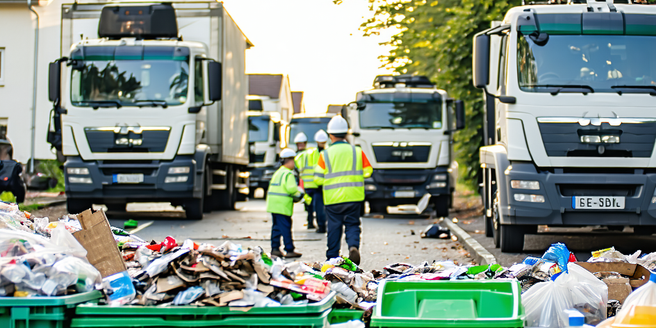Free Waste Removal Services

Introduction to Free Waste Removal Services
Free waste removal services aim to alleviate the burden of waste disposal for individuals and communities. By offering convenient and cost-free options, these services play a vital role in enhancing public health and maintaining clean environments. Many local governments, in collaboration with private agencies, have implemented programs that cater to diverse waste disposal needs. These services often include regular curbside pickups and specialized collection days for hazardous materials. Participation is encouraged as it fosters a community-driven effort toward sustainability. Accessing these services is usually straightforward, often requiring registration or proof of residency. Understanding the operational framework of these services helps individuals manage waste responsibly and contributes to a reduced carbon footprint. They not only aid in decluttering homes but also support broader environmental objectives by promoting recycling and landfill diversion.
Eligibility Criteria for Free Waste Removal
To utilize free waste removal services, individuals must typically meet certain eligibility criteria established to ensure resources are allocated efficiently. The most common requirement is residency within the service area, which is often verified through documents like utility bills or an ID card featuring a current address. Some programs prioritize lower-income households or are available to all residents regardless of income. Additionally, restrictions may be placed on the type and amount of waste accepted; earmarked collections for recyclables, electronics, or hazardous waste might have distinct requirements or limitations. It’s crucial to consult local government websites or contact service providers for precise eligibility details. Being informed about these criteria enables individuals to fully benefit from the services offered, ensuring compliance with set regulations and supporting effective waste management processes.
Types of Waste Accepted for Free Disposal
Free waste removal services commonly accept a broad range of waste types, though regulations usually specify limitations or exclusions. Typical categories include regular household waste, recyclables such as plastics, paper, and metals, as well as yard waste like leaves and grass clippings. Specialized categories often cover hazardous materials, including batteries, paints, and chemicals, but these may require separate collection events or appointments. It is less common for such services to accept construction debris, large appliances, or automotive parts without additional arrangements. Understanding what is accepted helps prevent contamination of the waste stream and facilitates efficient processing. Residents should refer to local guidelines or contact authorities for a detailed list of accepted items, helping to minimize environmental impact while promoting compliance with community waste management policies.
How to Schedule a Waste Pickup Appointment
Scheduling a waste pickup appointment for free removal services is generally straightforward, designed for user convenience. Most municipalities or service providers offer online platforms where residents can book appointments with just a few clicks. Alternatively, phone hotlines are available for those who prefer speaking to an operator. Information typically required includes the type and quantity of waste, the resident’s address, and preferred pickup dates. Some services even provide mobile apps to streamline the booking process further. Planning ahead is advisable, as schedules may fill quickly, particularly during peak disposal times. Many providers present flexible options, including same-day pickups, while others might require advance notice. This proactive approach guarantees efficiency and ensures that waste removal aligns seamlessly with residents’ routines, reinforcing organized and effective community participation in waste management.
Benefits of Using Free Waste Removal Services
Utilizing free waste removal services offers numerous advantages beyond mere cost savings. Residents contribute to a cleaner environment, reducing the local carbon footprint by diverting waste from landfills and into recycling streams. This supports municipal sustainability goals and community health by minimizing pollution. Free services also alleviate the personal burden of finding alternative disposal methods, offering a convenient solution to regular waste management. Access to such services enhances public awareness about responsible waste practices, fostering community responsibility and collaboration. Additionally, organized collection schedules help avoid illegal dumping and littering, promoting urban development and improved public spaces. By participating in these programs, individuals not only benefit their homes but also contribute to broader ecological initiatives, demonstrating a commitment to environmental stewardship and sustainable living practices within the community.
Tips for Reducing Waste Before Pickup
Reducing waste before scheduling a free removal pickup maximizes efficiency and promotes sustainable practices. Start by evaluating everyday habits to identify waste sources, then implement changes such as opting for reusable products over single-use items. Composting organic kitchen and yard waste significantly decreases the volume of disposable material. Another key strategy is to embrace minimalism, periodically decluttering to assess what truly serves a purpose in the household. Donation or selling items that remain usable can extend their life cycle and benefit others, further reducing waste input. Engage in local recycling programs and be mindful of packaging choices when purchasing goods. Staying informed about local waste management guidelines ensures proper sorting and disposal of materials. Practicing these tips helps not only reduce individual waste footprints but also enhances the overall efficiency of community waste removal efforts, fostering a culture of environmental consciousness.